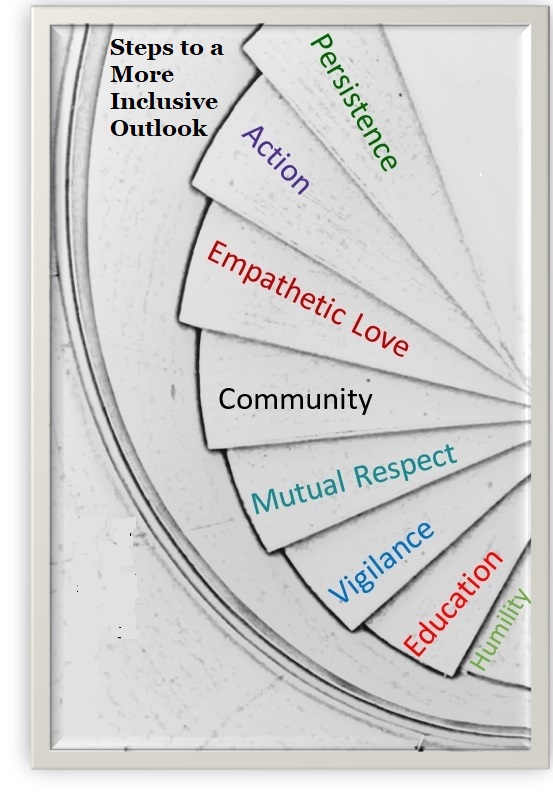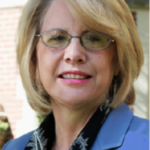Betty Phifer Advanced Studies
Sunday Mornings, 9:45 to 10:45, Room 307, & on Zoom
What Is a Sunday School Room?
A Sunday School room is not just a convenient place for assembly, but a holy ground for asking and responding to difficult questions without fear of alienation and judgment. It is a sacred place of belonging in a community where food, sorrows, joys, and doubts are shared and where deep listening and thinking for one’s self take place. More than a “somewhere,” it is a safe harbor for confronting the hurts, doubts, and puzzlements of the world. Everyone is welcomed to join us in this holy place and contemplate God’s universe.
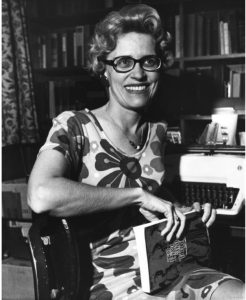
Betty Phifer
Betty Phifer was a social and political activist in Tallahassee, who taught religion at Florida State University. She founded the “Advanced Studies Class” and was its driving force until her premature death from cancer. She requested that the class always be named Advanced because of the challenging curriculum that include works by authors such as early and contemporary theologians, philosophers, and persons of other religious traditions. Her name was added to the class title after her death.
Learning Goals
We have two primary goals that are couched in the spirit of Christian love and activism:
(a) to understand and explore ways to solve problems in the contemporary world while gaining insights from experts in various fields and/or from each other; and
(b) to grow in service to—and in love for—God and our fellow human beings.

Eight Learning Values
1. Democratic leadership and participation 2. Honest engagement with diverse perspectives 3. Convictional openness 4. Challenging content 5. Diverse curriculum 6. Structured organization 7. Focused time-on-task 8. Responsible collaboration
—
Selected Studies for 2022-2024
| Theme | Title | Author | Theme One: Prayer, Devotion, Personal Relations to God | Secrets of God: Writings of Hildegard of Bingen | Hildegard of Bingen |
|---|---|---|
| Theme One: Prayer, Devotion, Personal Relations to God | The Difficult Words of Jesus | Amy Jill Levine |
| Theme One: Prayer, Devotion, Personal Relations to God | The Hours of the Universe: Reflections on God, Science, and the Human Journey | Ilia Delia |
| Theme One: Prayer, Devotion, Personal Relations to God | The Kingdom of God is Within You | Leo Tolstoy |
| Theme Two: Theological/Biblical History and Issues | The 7 Wisdom Books: An Introduction to the Wisdom Books of the Old Testament and the Apocrypha | Francis Brown |
| Theme Two: Theological/Biblical History and Issues | The Shaking of the Foundations | Paul Tillich |
| Theme Two: Theological/Biblical History and Issues | Accidental Theologians: Four Women Who Shaped Christianity | Elizabeth A. Dreyer |
| Theme Two: Theological/Biblical History and Issues | The Triumph of Christianity | Bart Ehrman |
| Theme Three: Social/Political/Practical Problems, Ecological Issues, Needs, and Affairs Approached from a Christian Perspective | Wilderness Essays | John Muir |
| Theme Three: Social/Political/Practical Problems, Ecological Issues, Needs, and Affairs Approached from a Christian Perspective | The Sacred Universe | Thomas Berry |
| Theme Three: Social/Political/Practical Problems, Ecological Issues, Needs, and Affairs Approached from a Christian Perspective | Moral Man and Immoral Society | Reinhold Niebuhr |
| Theme Three: Social/Political/Practical Problems, Ecological Issues, Needs, and Affairs Approached from a Christian Perspective | Reverence for Life: The Words of Albert Schweitzer | Albert Schweitzer |
| Theme Four: Inter-Faith Dialogues and Relations in an Increasingly Global World | I and Thou | Martin Buber |
| Theme Four: Inter-Faith Dialogues and Relations in an Increasingly Global World | The Story Of My Experiments With Truth | Mahatma Gandhi |
| Theme Four: Inter-Faith Dialogues and Relations in an Increasingly Global World | Living Buddha, Living Christ | Thich Nhat Hanh |
| Theme Four: Inter-Faith Dialogues and Relations in an Increasingly Global World | When Christians Were Jews: The First Generation | Paula Fredriksen |

Curriculum and Current Study
Our curriculum includes four thematic areas from which we draw our studies: prayer, devotion, and personal relations to God; theological and Biblical history; social, political, and ecological Issues; and inter-faith dialogue and relations in an increasingly global community; all of these are approached from a Christian perspective.
Current Study: Moral Man and Immoral Society by Reinhold Niebuhr
One of the theological classics of the twentieth century, Niebuhr’s Moral Man and Immoral Society argues that using moral persuasion and shaming to affect the behavior of such collectives as corporations and nation states is fruitless, as these groups will inevitably seek to promote only their self-interest. He calls for a realistic assessment of group behavior and enumerates how individual morality can mitigate social immorality.
General Info
We meet in room 307 at 9:45 a.m. on Sundays. We also connect with our travelers and others by means of Zoom. During our COVIC hiatus, we made the change from shared leadership to weekly facilitation by Donald Crosby, professor emeritus in philosophy from Colorado State University. Don earned an M.Div from Princeton Theological Seminary; a joint PhD from Columbia University and Union Seminary in New York; and a post-doc from Yale University. His area of research includes philosophy of religion, and he also holds an undergraduate degree from Davidson College in classical languages.

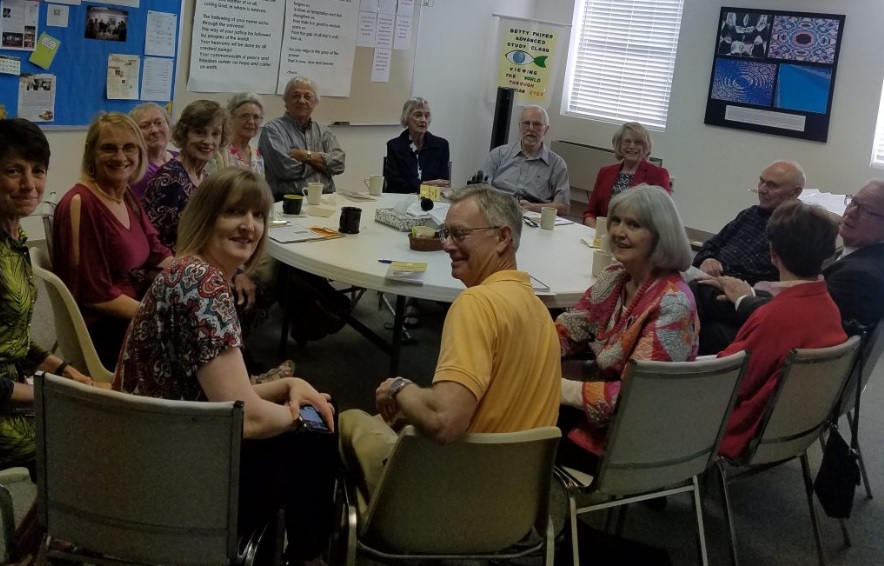
Teaching and Learning Format
We encourage democratic participation by means of thoughtful, open, and honest dialogue. Because all class participants are considered valuable resources with unique perspectives and contributions, we encourage our members to think deeply, ask questions, and freely express their opinions based on careful reflection. We support each other in striving to go beyond merely occupying a seat in class on Sunday mornings to being active and deeply thoughtful participants.
To see our Discussion Guidelines, please see below.
Service Projects
Our service projects have included microfinancing through KIVA, purchasing and assembling care bags for our friends who are homeless, and providing financial assistance to Guardian ad Litem.


Discussion Guidelines
1. We open with prayer to center us. |
2. We use respectful language in a safe and loving atmosphere. |
3. We offer all participants equal opportunities to speak. |
4. We welcome thoughtful and respectful disagreement; each person is a valued and vital resource. |
5. We give each study our time and earnest attention. |
6. We close with a prayer to affirm our place in God’s presence. |
Steps to a More Inclusive Outlook
